We all love Christmas …
… including our pets!
It is a time to celebrate and share with family and friends and our 4-legged family members can’t help but join in on all the fun and festivity.
But Christmas also presents a world of hidden dangers to our pets, from decorations and toxic foods to dangerous seasonal plants.

To help keep your pets safe this Christmas we have listed some of the more common dangers and perhaps one or two you may not have thought about as your prepare for the holiday season.
Christmas Food & Drink
Chocolate
The chemical theobromine is found in chocolate and is toxic to dogs. Even small amounts can cause agitation, hyper-excitability, tremors, convulsions and problems with the heart. The darker the chocolate, the more potent levels of theobromine become – with baker’s chocolate the most dangerous. Chocolate should be avoided at all costs. White chocolate does not contain enough theobromine to cause toxicity, but it can be fatty and pose a potential risk of pancreatitis. If you suspect your dog has eaten chocolate call you vet immediately.
Avoid putting any chocolate on or under the Christmas tree, as the temptation might be too great for our four legged friends.
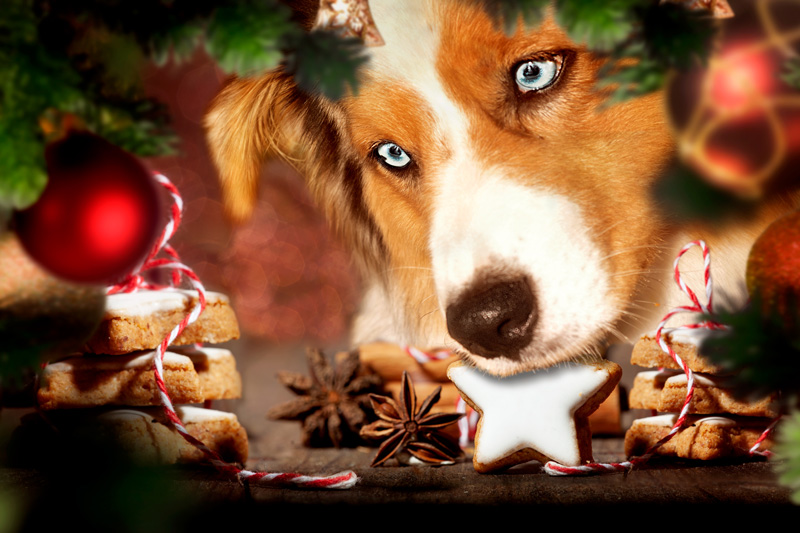
Christmas pudding and fruit mince pies
Grapes, currants, sultanas and raisins are toxic to dogs. Ingestion of even a small quantity can cause severe kidney failure. Don’t forget this will include food items that contain dried fruits such as Christmas pudding and mince pies. Be aware that chocolate-coated raisins run the additional risk of chocolate toxicity.
Onions, garlic, leeks, shallots and chives
Onions, garlic, leeks, shallots and chives all belong to the Allium species of plants and can cause toxicity, whether uncooked or cooked. Initially there can be vomiting and diarrhoea but the main effect is damage to red blood cells, resulting in anaemia. This may not be apparent for several days after ingestion.
Alcohol
Alcohol can have a similar effect in dogs as it does in their owners when drunk in excess. They can become wobbly and drowsy and in severe cases, there is a risk of low body temperature, low blood sugar and coma. Dogs may help themselves to any unattended alcohol left lying around over Christmas, so ensure it’s always out of their reach.
Macadamia nuts
Macadamia nuts can cause lethargy, increased body temperature, tremor, lameness and stiffness in dogs.
Leftovers
If there is any food left over at Christmas, be careful to dispose of it well and keep it out of the reach of your four-legged friend. Not only may the food include ingredients toxic to dogs, mould in leftovers (including yoghurt, bread and cheese) can produce toxins that cause rapid onset convulsions in dogs.
Artificial sweeteners
A sugar-free sweetener called xylitol is often found in the sweets we consume over Christmas, as well as chewing gums. It is poisonous to dogs and as little as one to two pieces of chewing gum can cause toxic effects in a small dog. Xylitol can induce the release of insulin in the body, resulting in low blood sugar and sometimes liver damage. Signs of poisoning can be rapid or delayed, and include vomiting, lethargy, convulsions and comas. The prognosis is good if the low blood sugar is treated quickly.
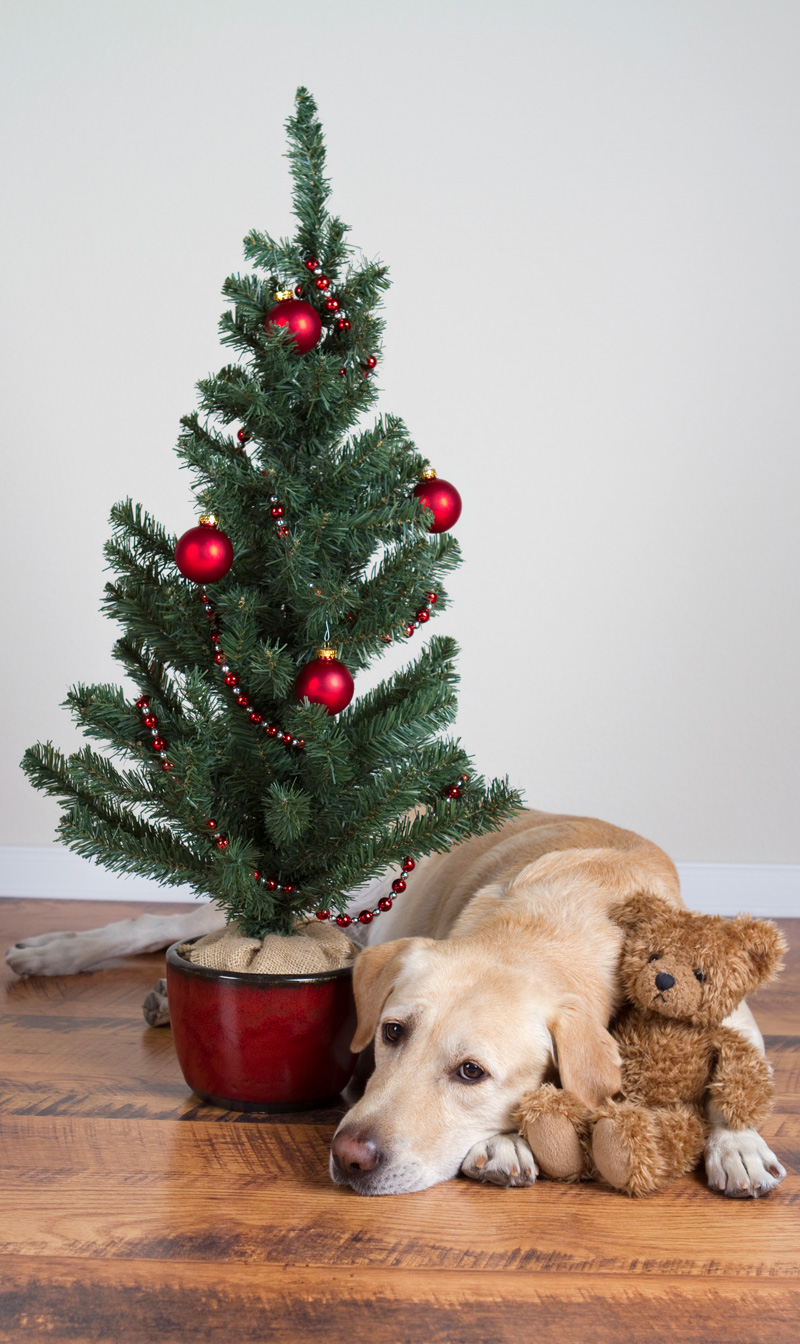
Christmas plants
Poinsettia
Poincettia can cause irritation to the mouth and stomach with overproduction of saliva and sometimes vomiting.
Holly
The ingestion of holly berries may result in a stomach upset.
Mistletoe
Ingestion of European mistletoe berries may result in an upset stomach. The American species of the plant is far more dangerous.
Christmas trees
A mild stomach upset can be caused if dogs eat pine needles, but the sharp tips can cause more damage internally.
Lillies
Lillies are toxic to cats especially causing kidney failure.
And then there is …
Silica gel
Silica gel comes in small sachets and is often found in the packaging of new shoes, handbags, cameras or electrical equipment which we unwrap over Christmas. Although it is labelled “Do not Eat” it is considered to be of low toxicity.
Potpourri
When eaten, potpourri can cause significant gastrointestinal effects in dogs. These may last several days even after the material has passed through the gut.
Christmas decorations
Decorations made of plastic, paper or foil are of low toxicity although may obstruct the stomach. Glass decorations could pose a risk if chewed or swallowed. Tinsell if ingested can cause blockages as can small Christmas decorations.
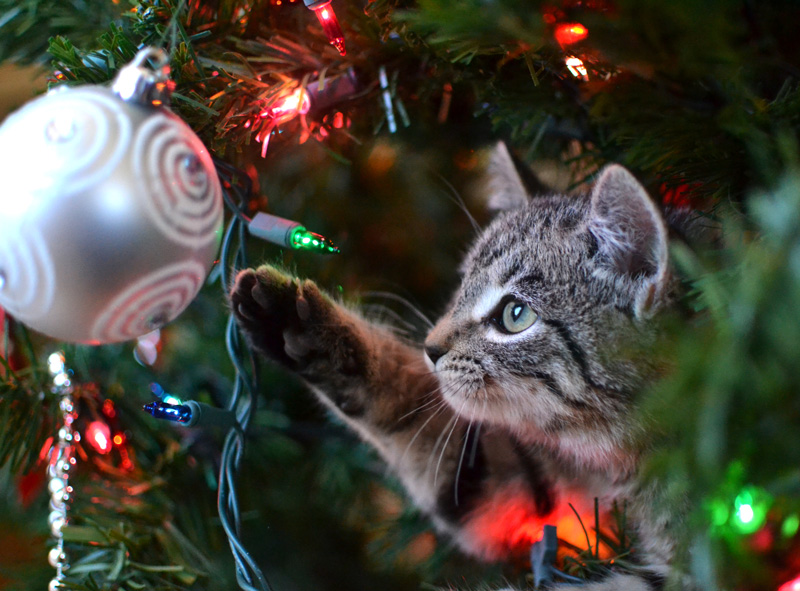
Wrapping or crepe paper
Ingestion may cause staining in the mouth which may look alarming, but the toxicity is considered to be low. But if your dog eats a large amount, it may cause an obstruction to the stomach.
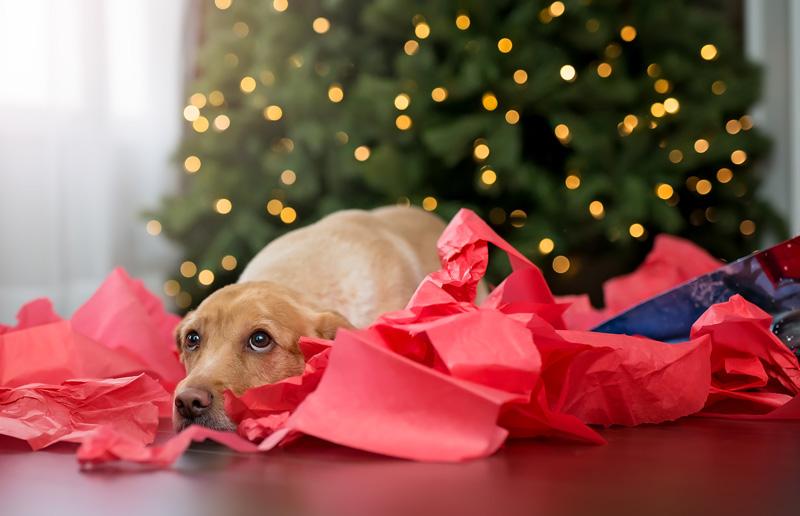
Candles
Although candles, even scented ones, are considered to be of low toxicity, ingestion could potentially block the intestine or cause choking.
Batteries
Make sure you keep batteries out of harms way. They are often packages separately with toys or other presents and can easily be left lying around where your dog or cat might find them. If chewed they can cause chemical burns and if ingested damage the internal organs and cause blockages.

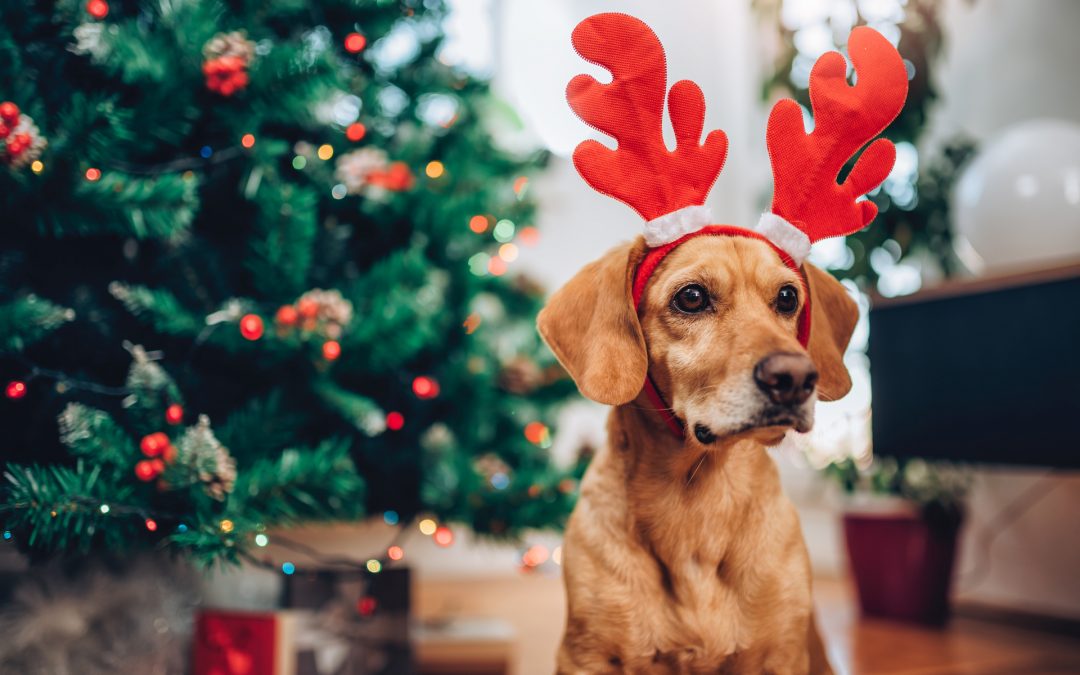


Recent Comments